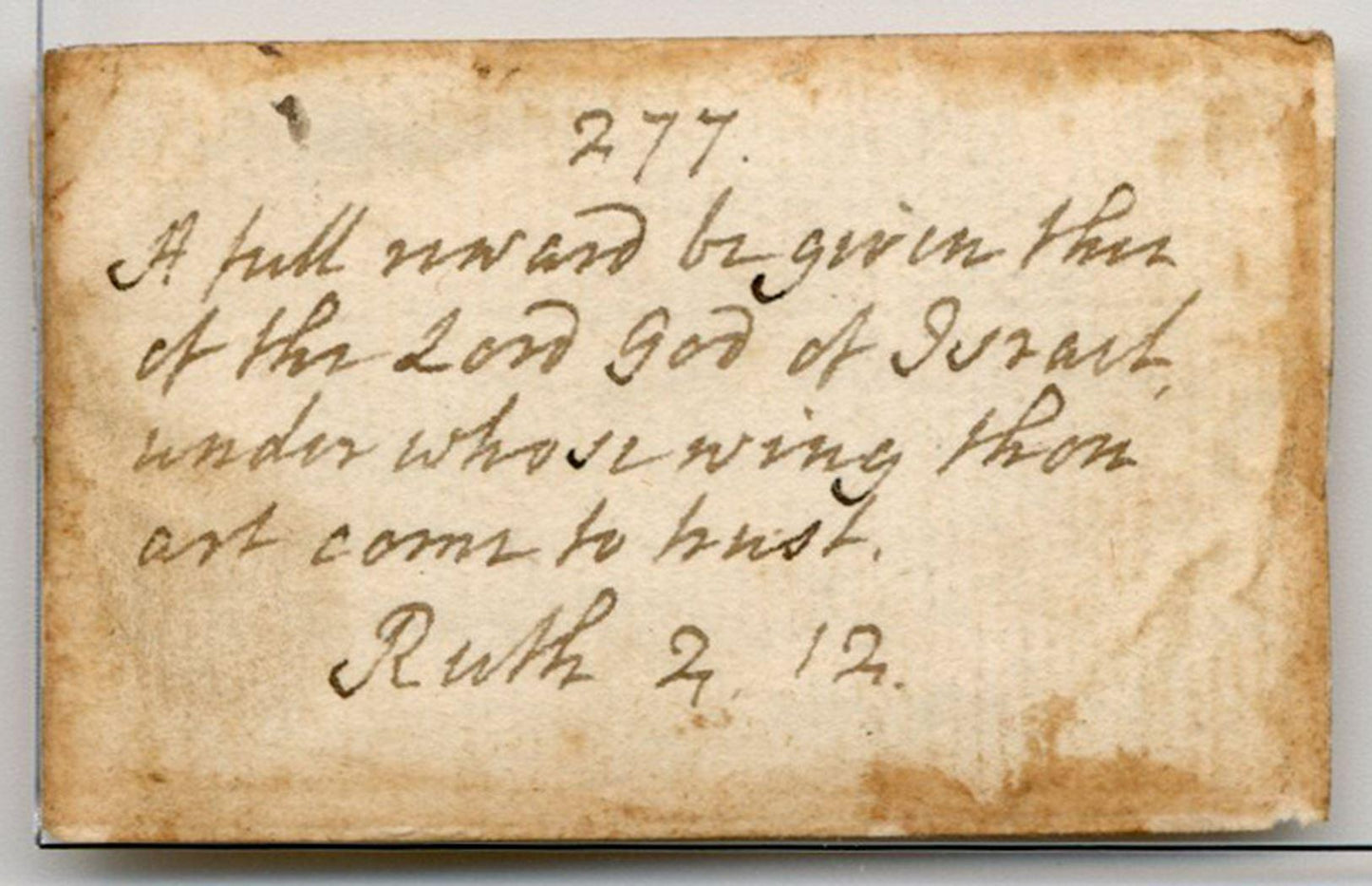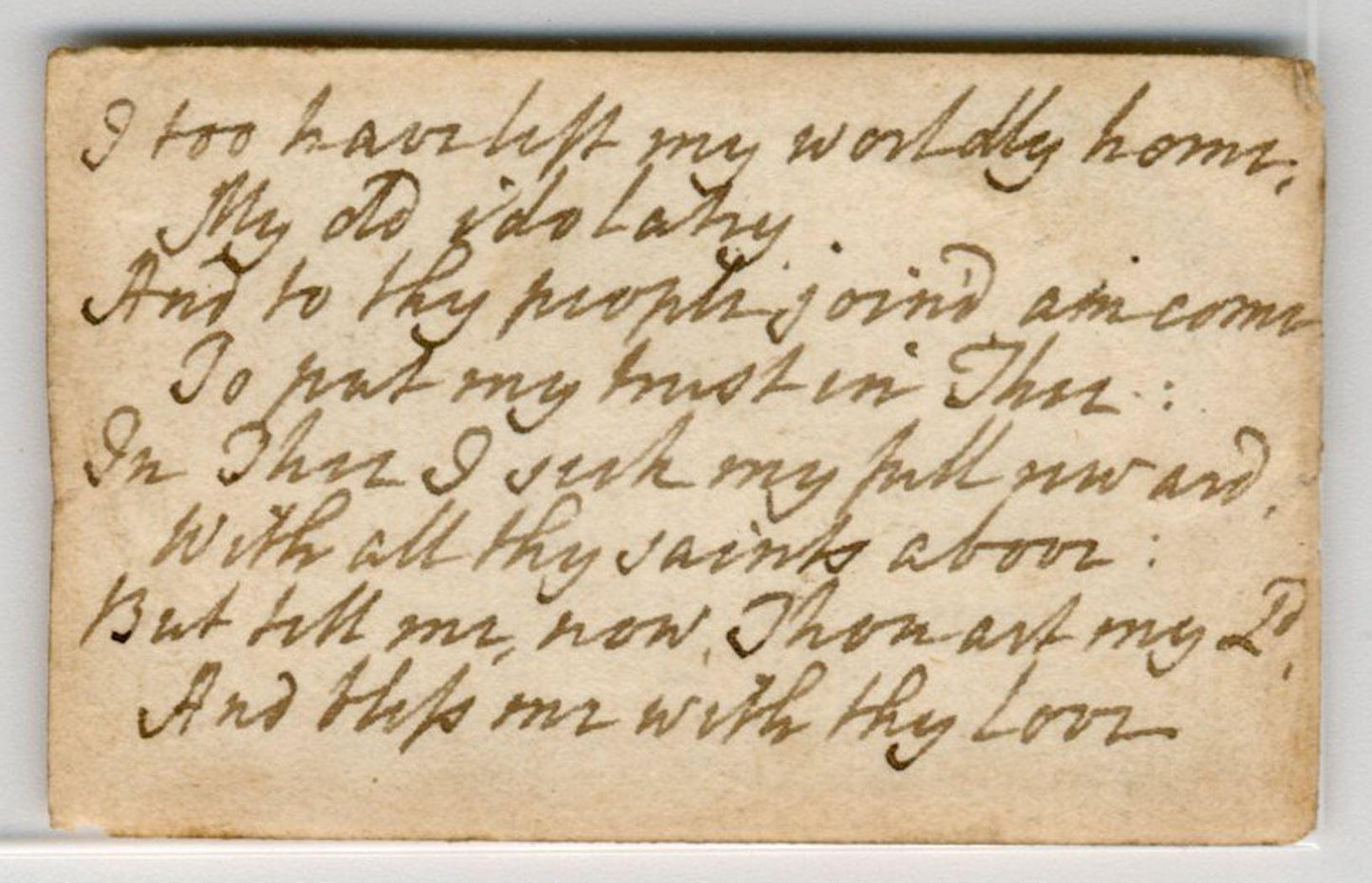Specs Fine Books
1760 CHARLES WESLEY. Manuscript Hymn on the Book of Ruth. Owned by Dr. C. C. Ryrie!
1760 CHARLES WESLEY. Manuscript Hymn on the Book of Ruth. Owned by Dr. C. C. Ryrie!
Couldn't load pickup availability
An absolutely wonderfully provenanced little manuscript entirely in the hand of Charles Wesley (1707-1788). This double-sided document contains over 70 words and was written by the hand of the co-founder of both Methodism and of modern hymnody.
On one side, Wesley has copied out part of Ruth 2:12 from the King James Bible. On the reverse, he has penned a hymn inspired by this biblical passage on the reverse. This appears to predate the original appearance of the hymn in print.
Wesley's hymn, published later with additional verses, was inspired by this single verse in the Book of Ruth. This Old Testament story recounts the experiences of Ruth, a Moabite woman who decides to stay with her Jewish mother-in-law, Naomi, despite being recently widowed and free to return to Moab. The Book of Ruth carries two distinct messages: the value of religious faith, since Ruth continues to honor her conversion to Judaism; and the value of filial piety, as Ruth opts to accompany her mother-in-law to Bethlehem. Wesley omitted the first part of Ruth 2:12, "The Lord recompense thy work" but recorded the rest of the verse. The hymn inspired by this passage is in the form of an 8-line ABAB rhyming poem.
Wesley's handwritten card reads:
[Recto]
A full reward be given this /
of the Lord God of Israel /
under whose wing thou /
art come to trust.
Ruth 2 12.
[Verso]
I too have left my worldly home, /
My old idolatry /
And to thy people join'd am come /
To put my trust in Thee: /
In Thee I seek my full reward, /
With all thy saints above: /
But tell me, now, Thou art my Ld, /
And bless me with thy Love."
This hymn was originally published in a two-volume set by Charles Wesley entitled "Short Hymns on Select Passages of the Holy Scriptures" in 1762. An abridged second edition appeared between 1794-1796, testifying to the staying power of Wesley's verses. The number "277" appearing at the top of the card recto perhaps corresponds to a numbering system which is unknown. In an 1870 version produced by the Wesleyan-Methodist Conference Office, for example, this hymn appeared not as 277 but as 453.
The card measures 2.625 x 1.625 and would look absolutely beautiful framed with a period Charles Wesley engraving.
The item originates from John Wilson Autographs of England and from thence, from the Bible and manuscript collection of Dr. Charles Caldwell Ryrie [1925-2016], author of the classic Ryrie Study Bible, and so much more. Authenticity is unconditionally guaranteed.
Share




